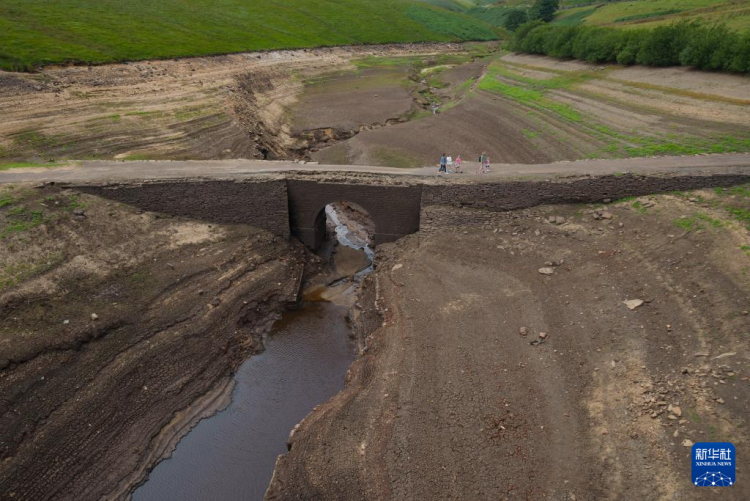Britain is facing a national water shortage, with drought continuing in many areas and falling river flows and reservoirs, the national drought group said Monday, agricultural production and the ecological environment are facing severe challenges.

Many parts of the UK have been hit by drought, with water levels in some reservoirs falling. (photo: Xinhua)
The first half of this year was the driest in Britain since 1976, according to official reports. Despite some rainfall in July, river flows and reservoir water levels are still on a downward trend compared to June. In August, dry weather returned, adding to the fourth summer heat wave, increasing pressure on public water supply systems and inland waterways.
At present, the water shortage in England is quite serious. According to a press release issued by the British Environment Agency on the 12th quoted by Xinhua News Agency, the national drought team has defined the current water shortage in England as a“National event”. The communiqué said five areas of England were officially in drought, with many rivers and reservoirs in England continuing to drop in water levels in July compared with June. Last week, the water level in England’s reservoirs fell by 2% , and the average volume of water now stands at 67.7% , compared with an average of 80.5% in the first week of August.
The drought has had an obvious impact on ecology and agriculture, according to the UK’s national drought unit. Low river flow leads to a lack of oxygen in the water, leading to the death of fish and the growth of algae, the drying up of wetlands threatens the species that depend on them, and wildfires are on the rise. In agriculture, some farm crops are severely reduced, and the livestock industry is under pressure to use winter feed ahead of schedule because of insufficient grass growth. The National Farmers’ Federation says stable water is vital for food production and investment in water infrastructure should be accelerated.
According to China News Service, the British meteorological office predicted that temperatures in the south of the country would rise above 30 degrees Celsius this week, and that it was likely to remain dry in late August, with local or thunderstorms, but it would be difficult to change the overall drought pattern. The UK’s Environment Agency called on the public to help reduce water use by installing rain buckets, fixing leaks and cutting shower times.
Helen Wakeham, head of water services at the Environment Agency and Chair of the National Drought Group, said in a press release on the 12th that the current situation has a major impact on the UK, call on everyone to play a role in water conservation to reduce the pressure on the water environment.